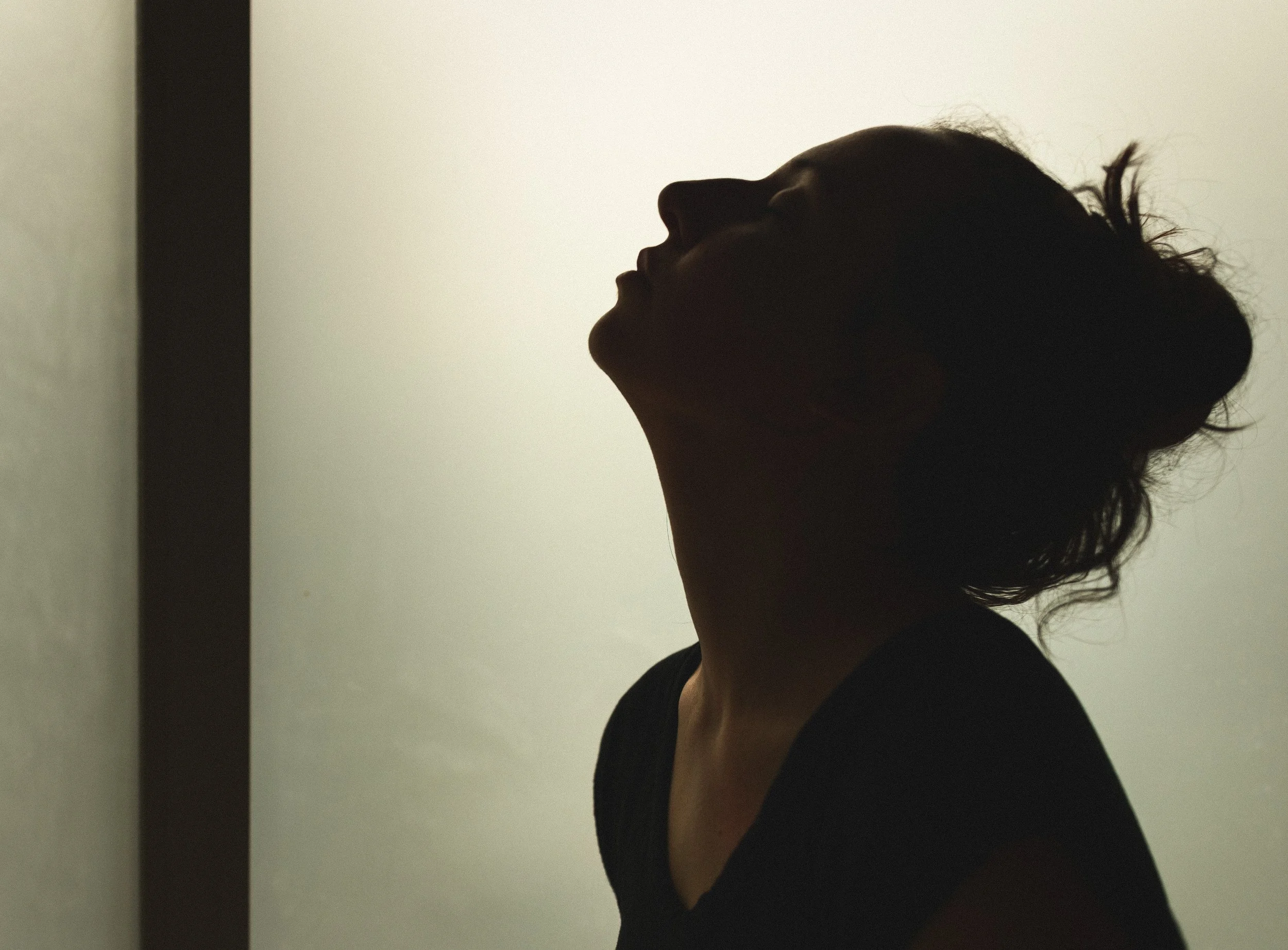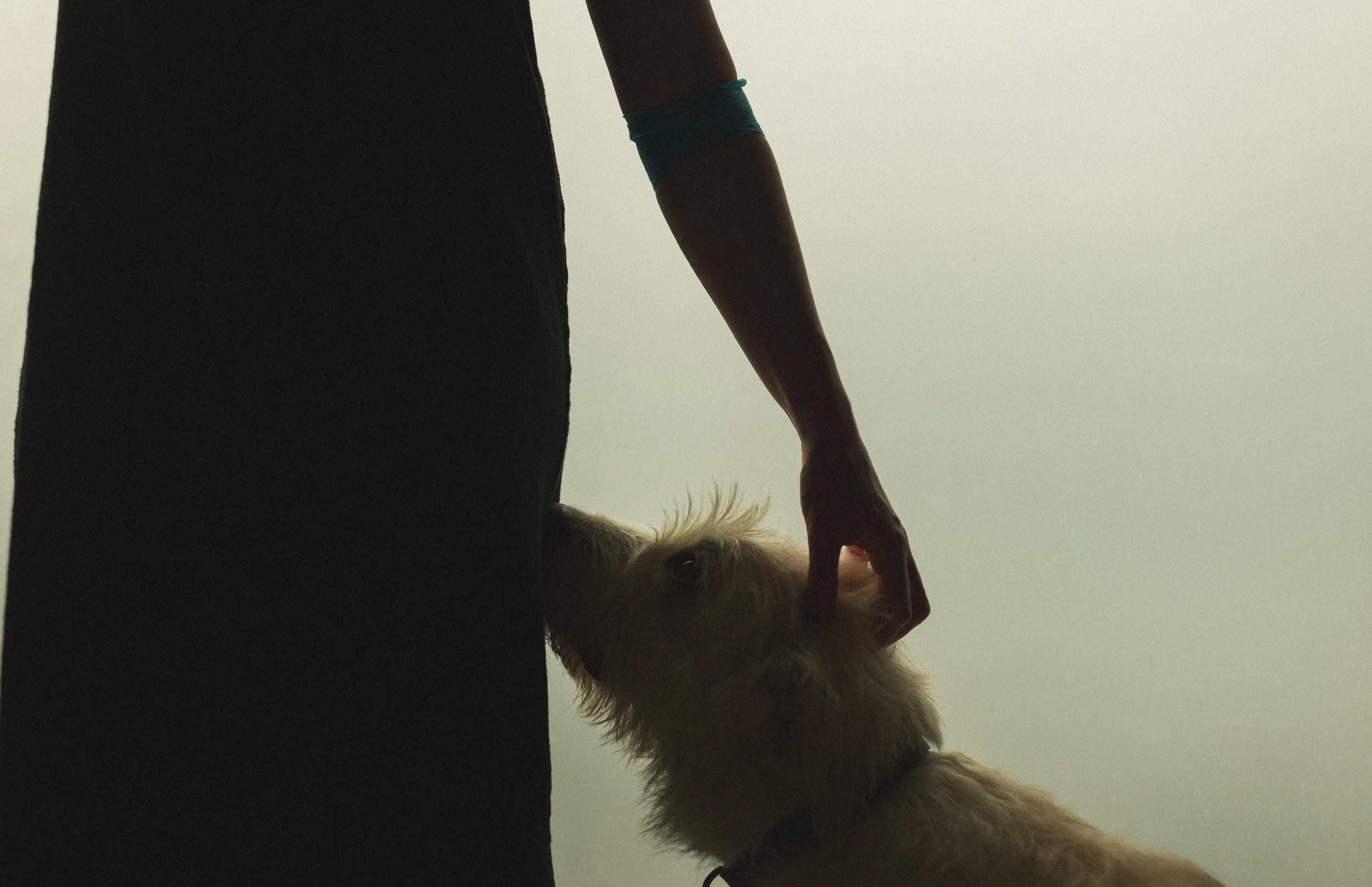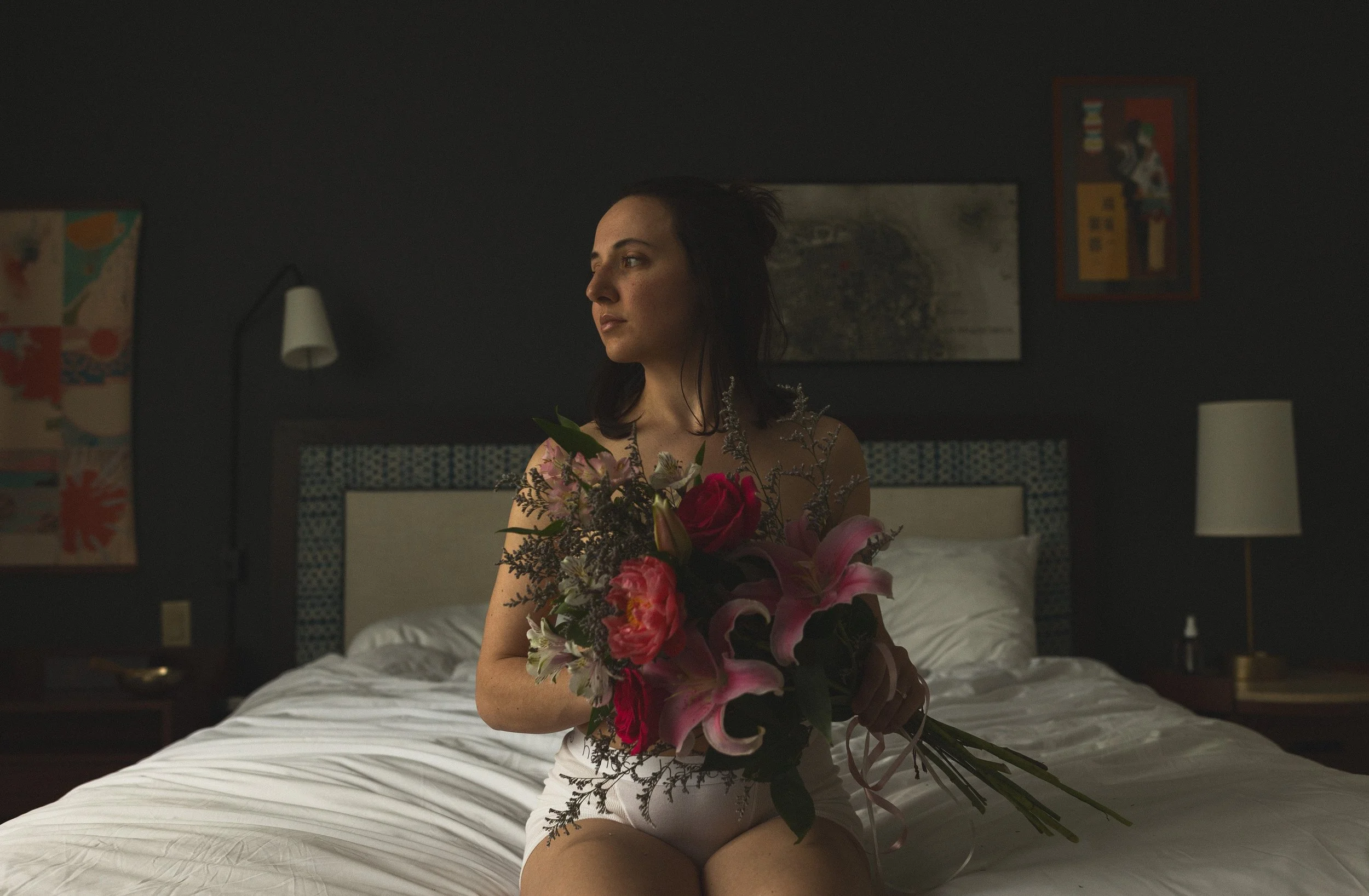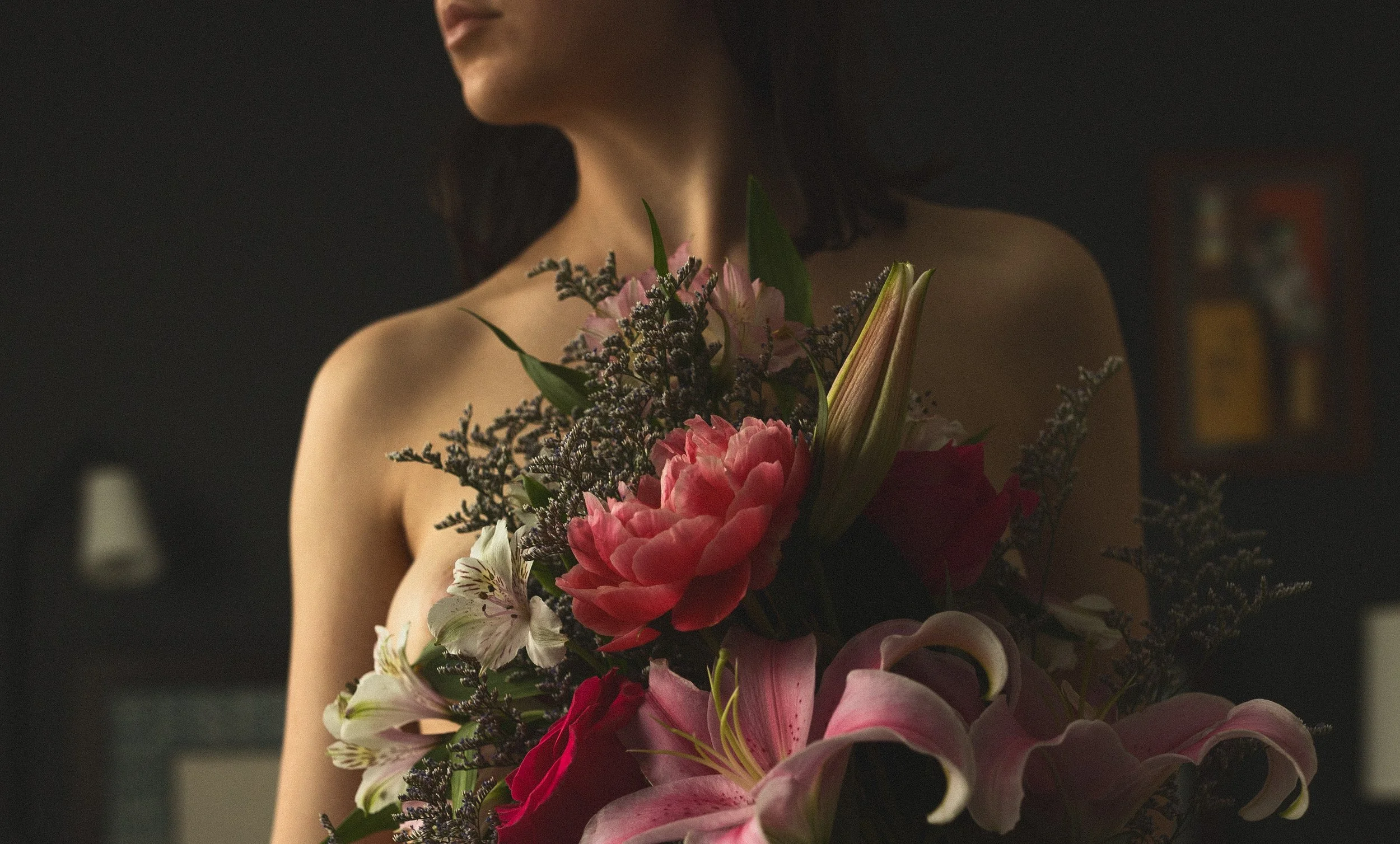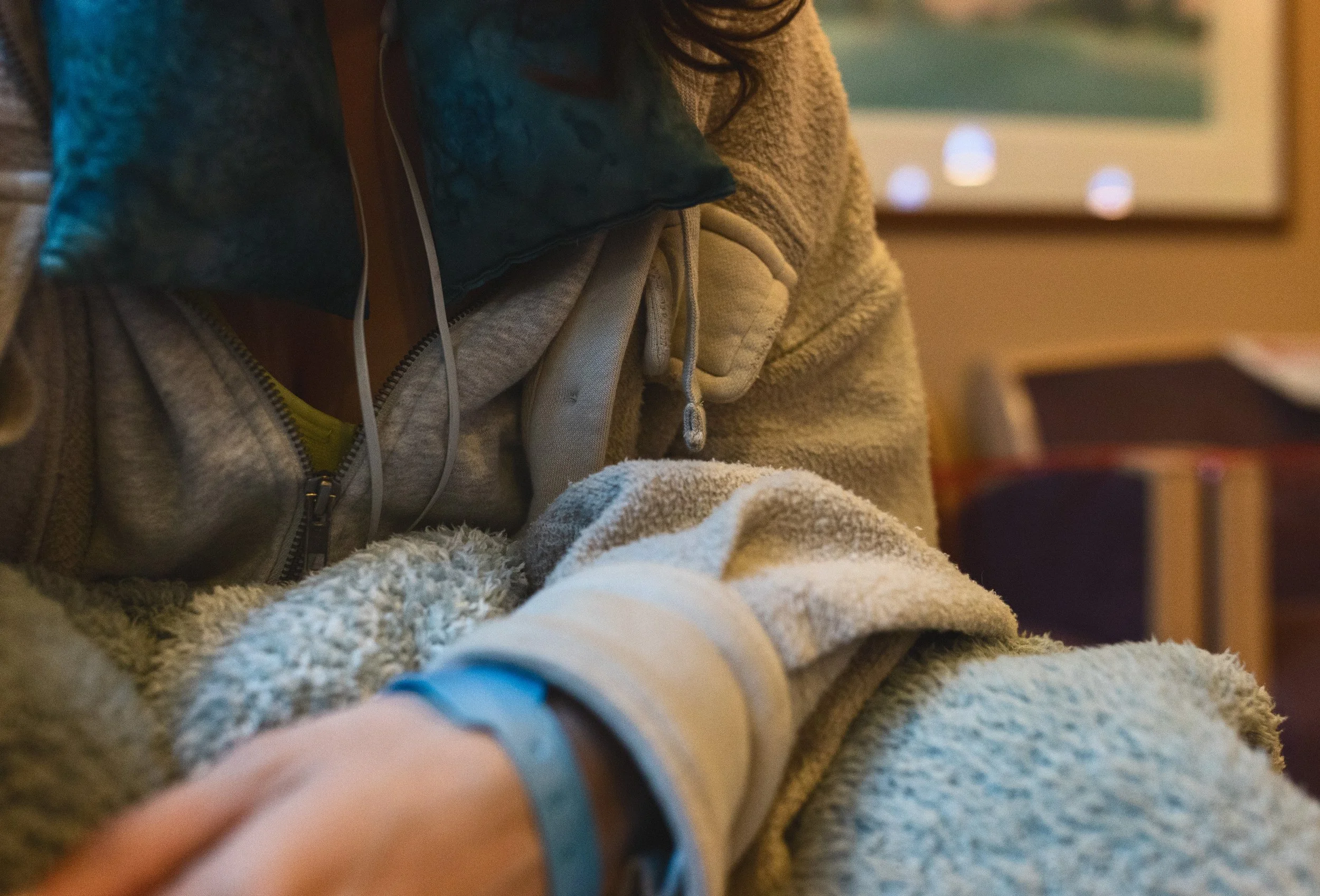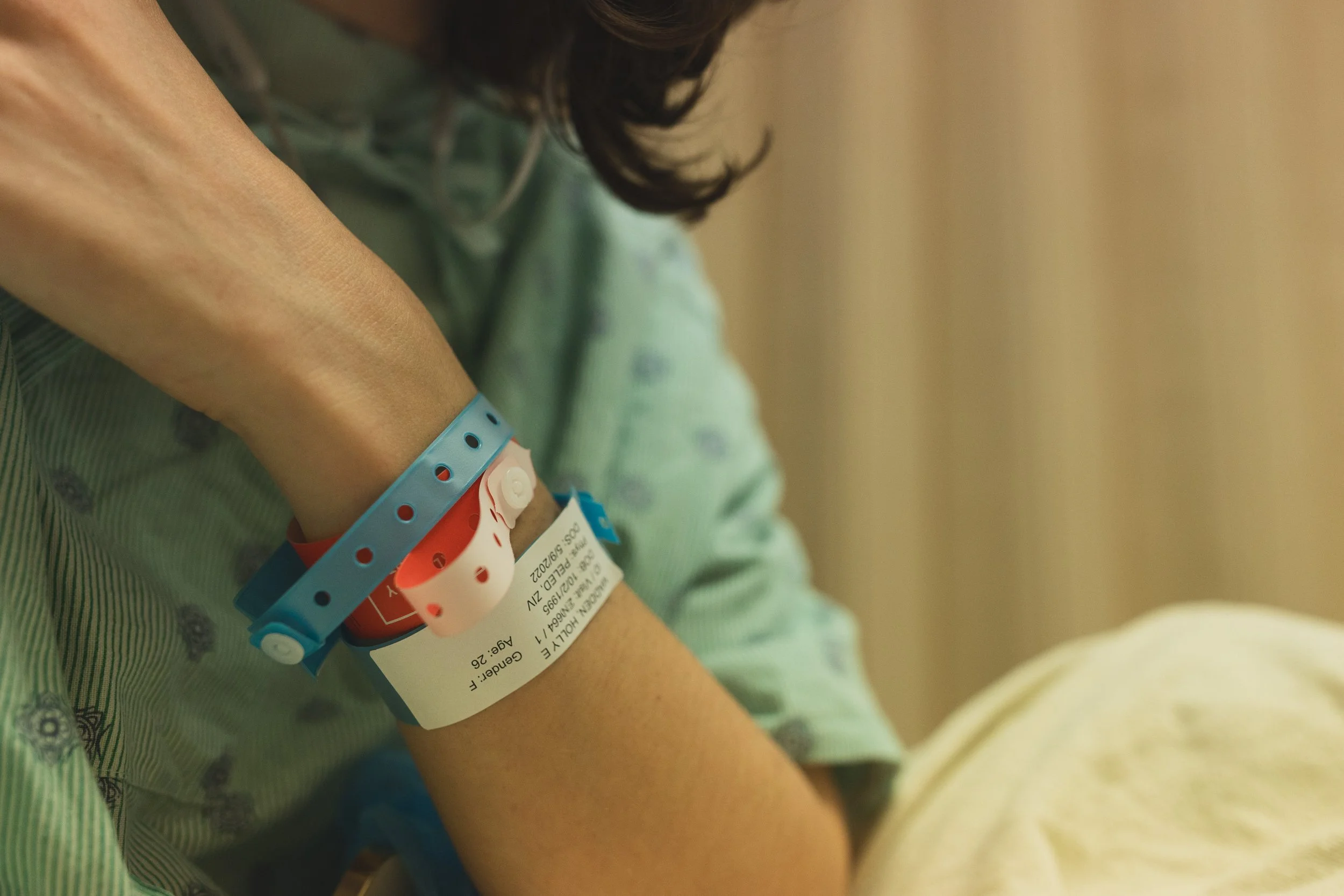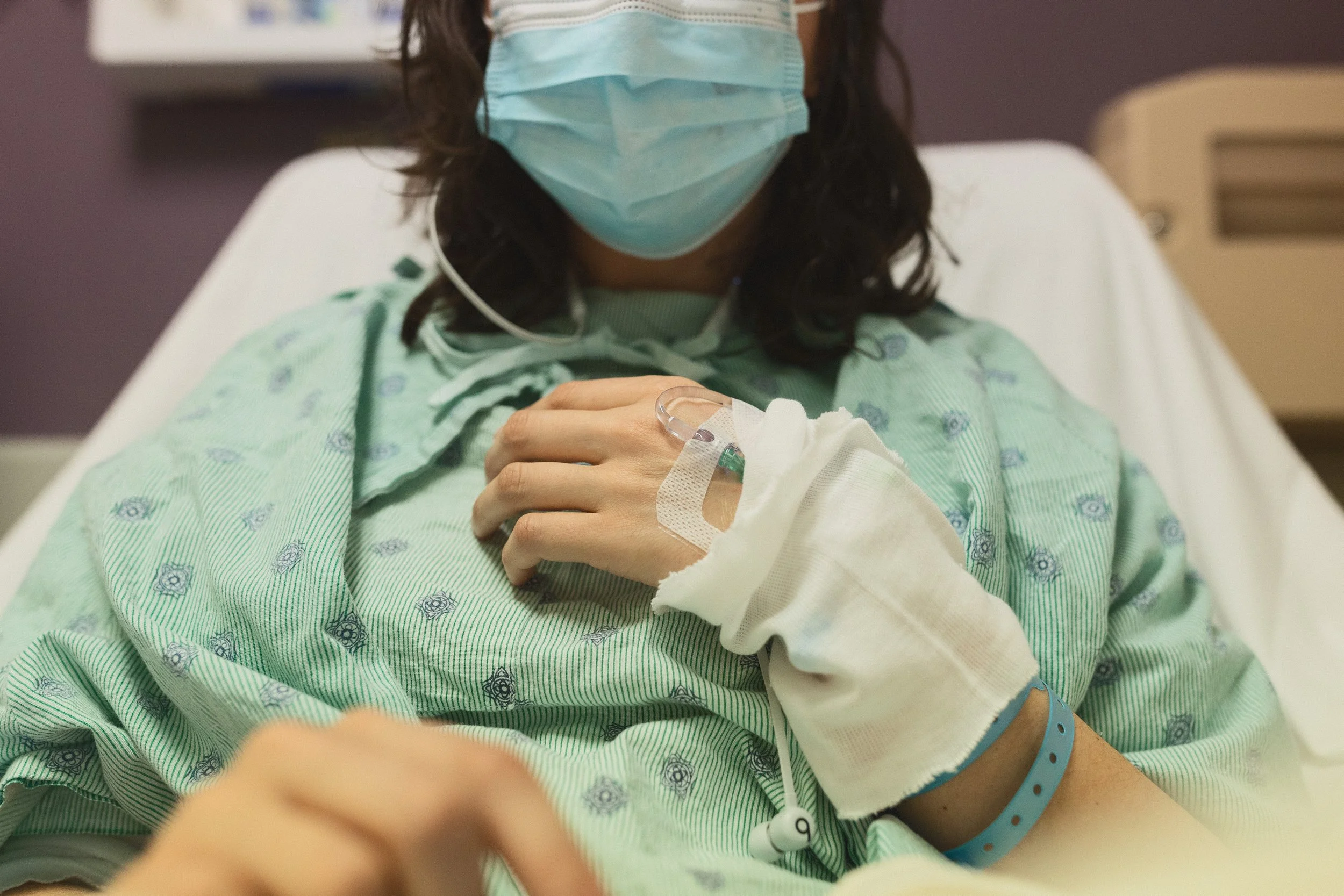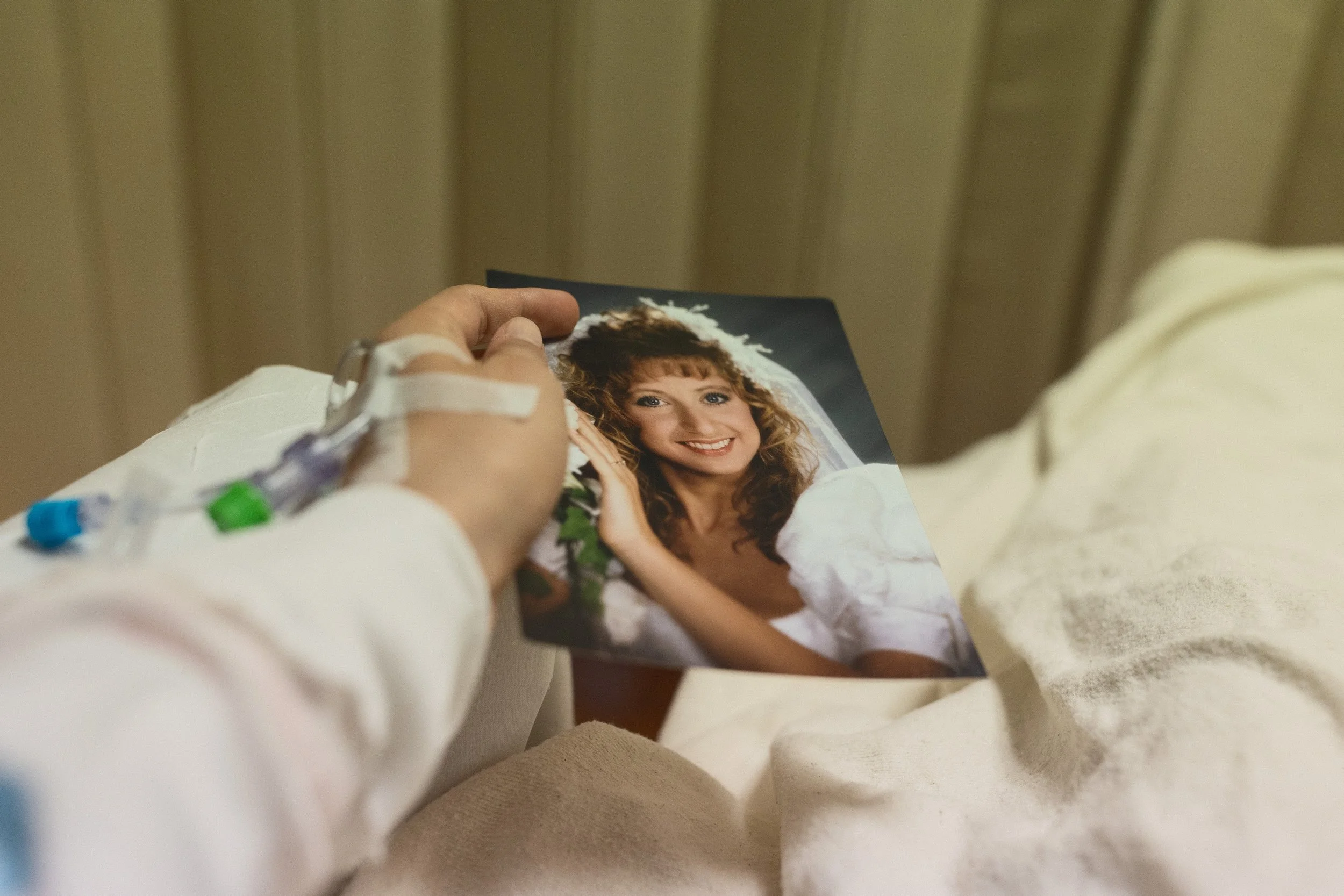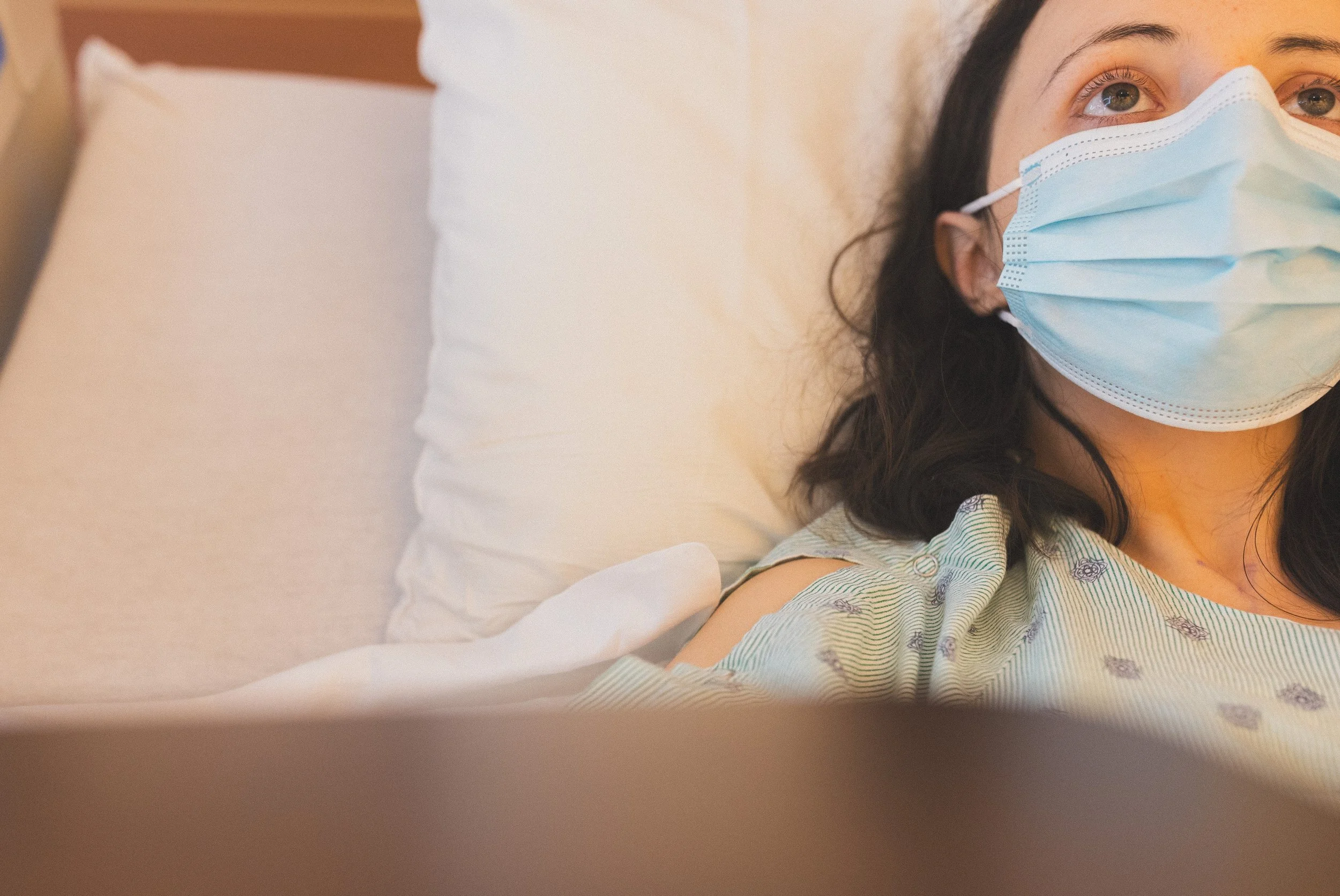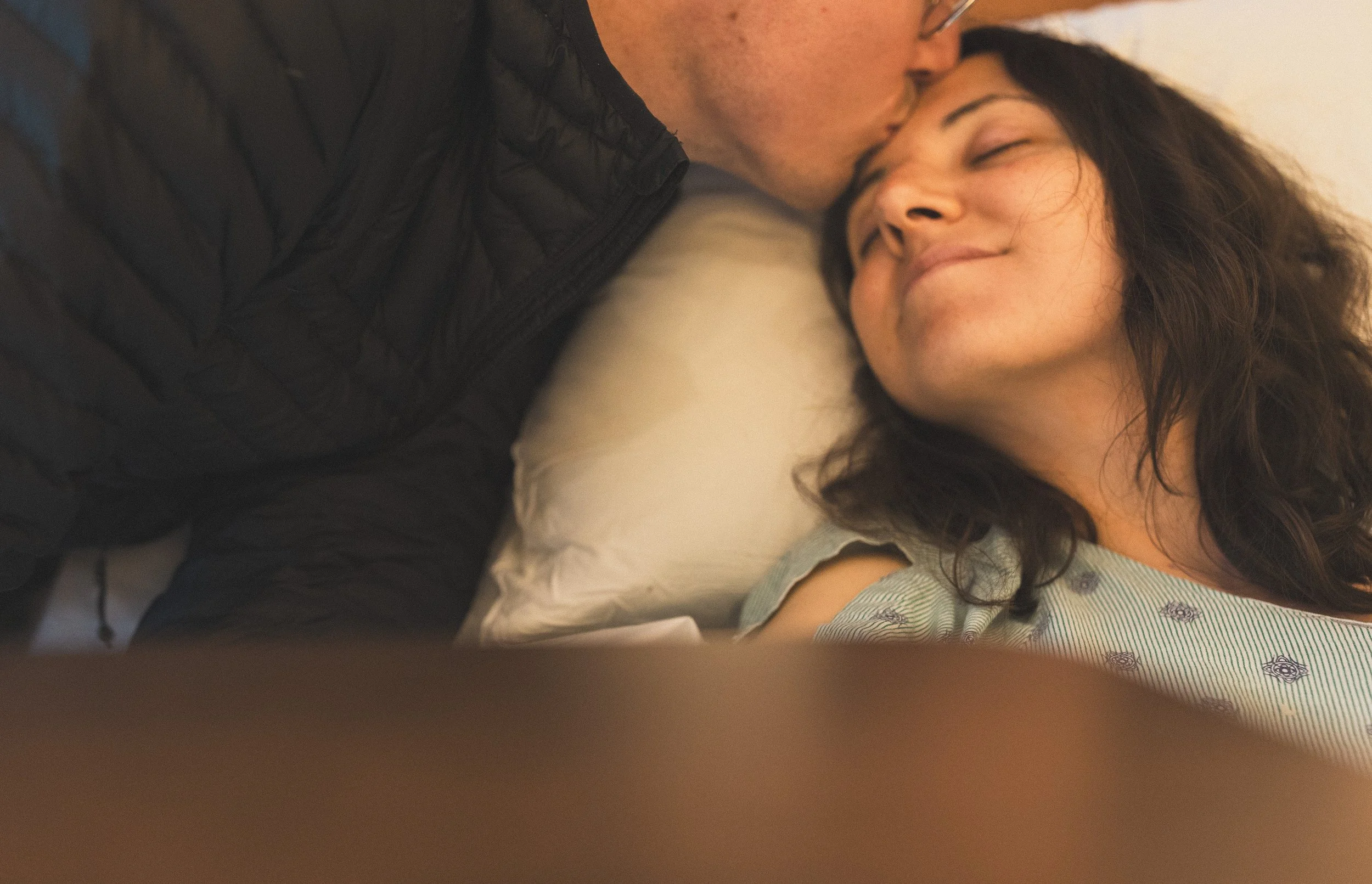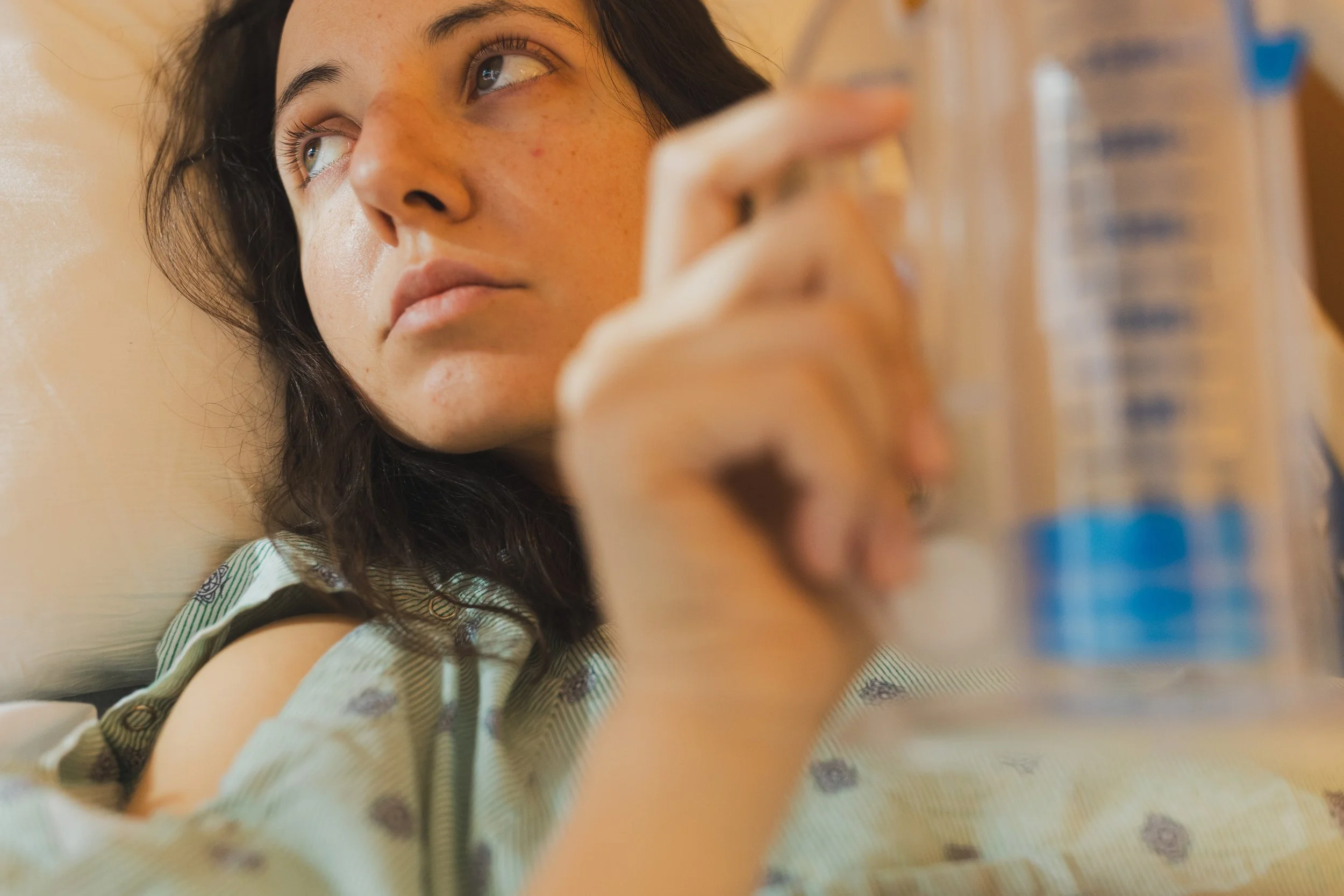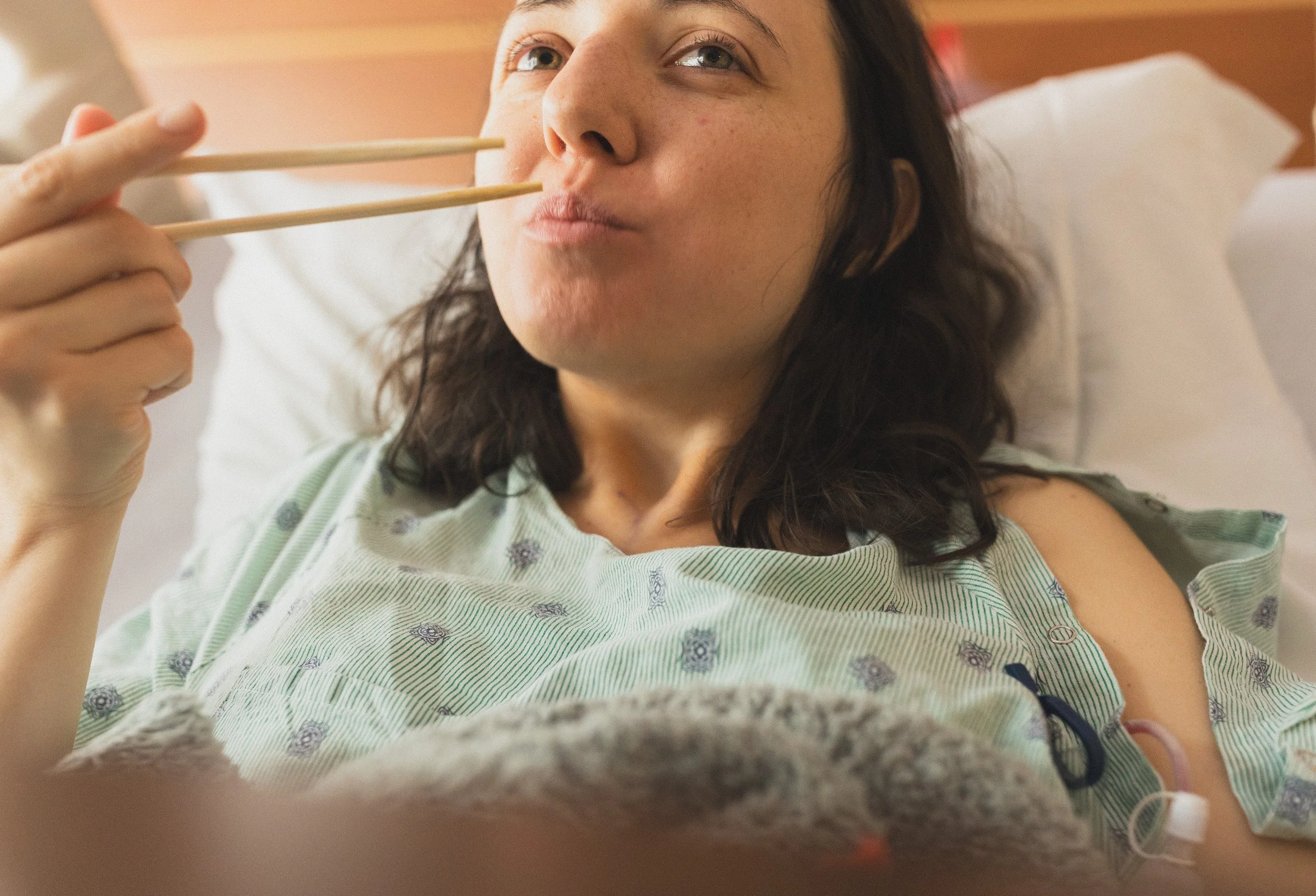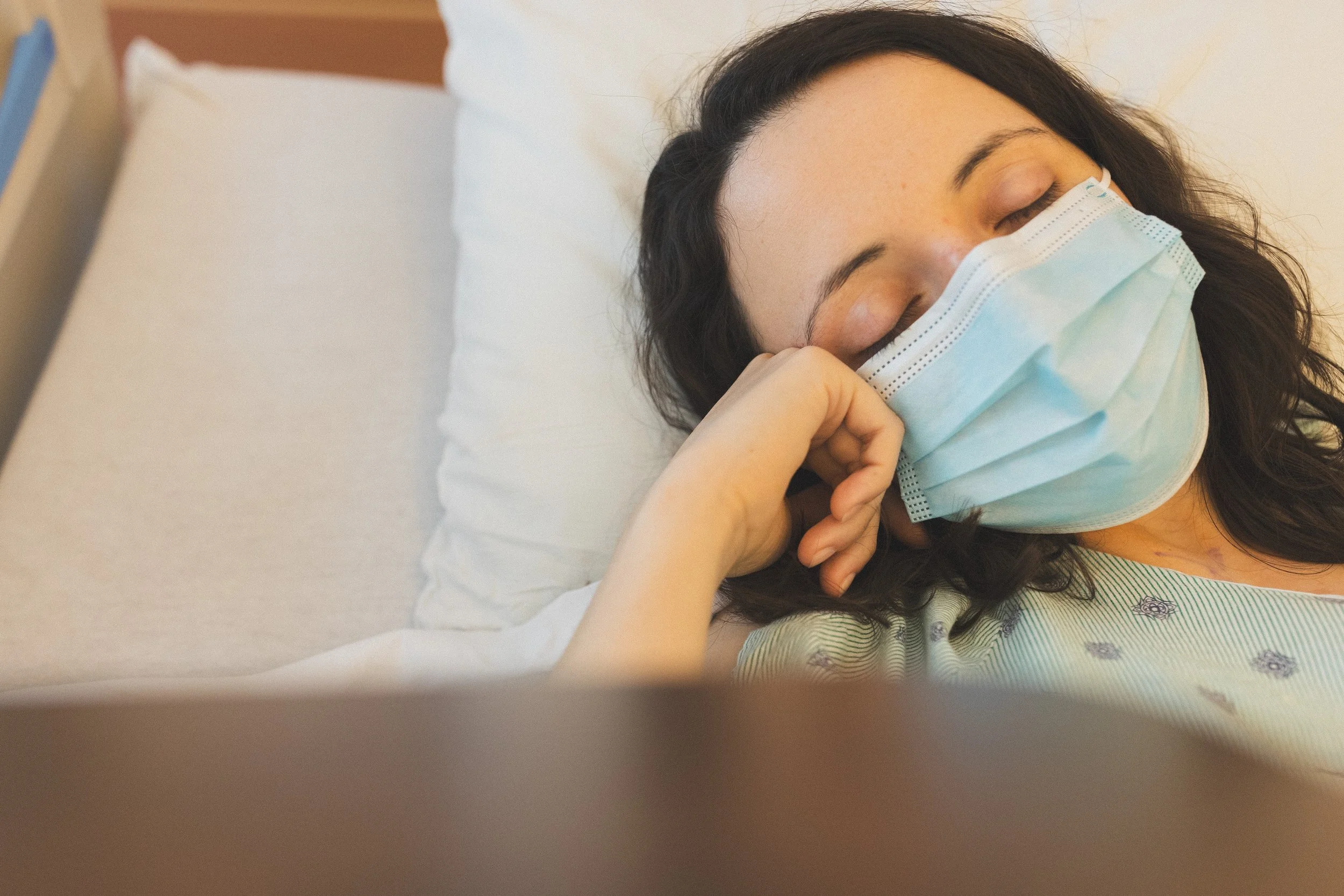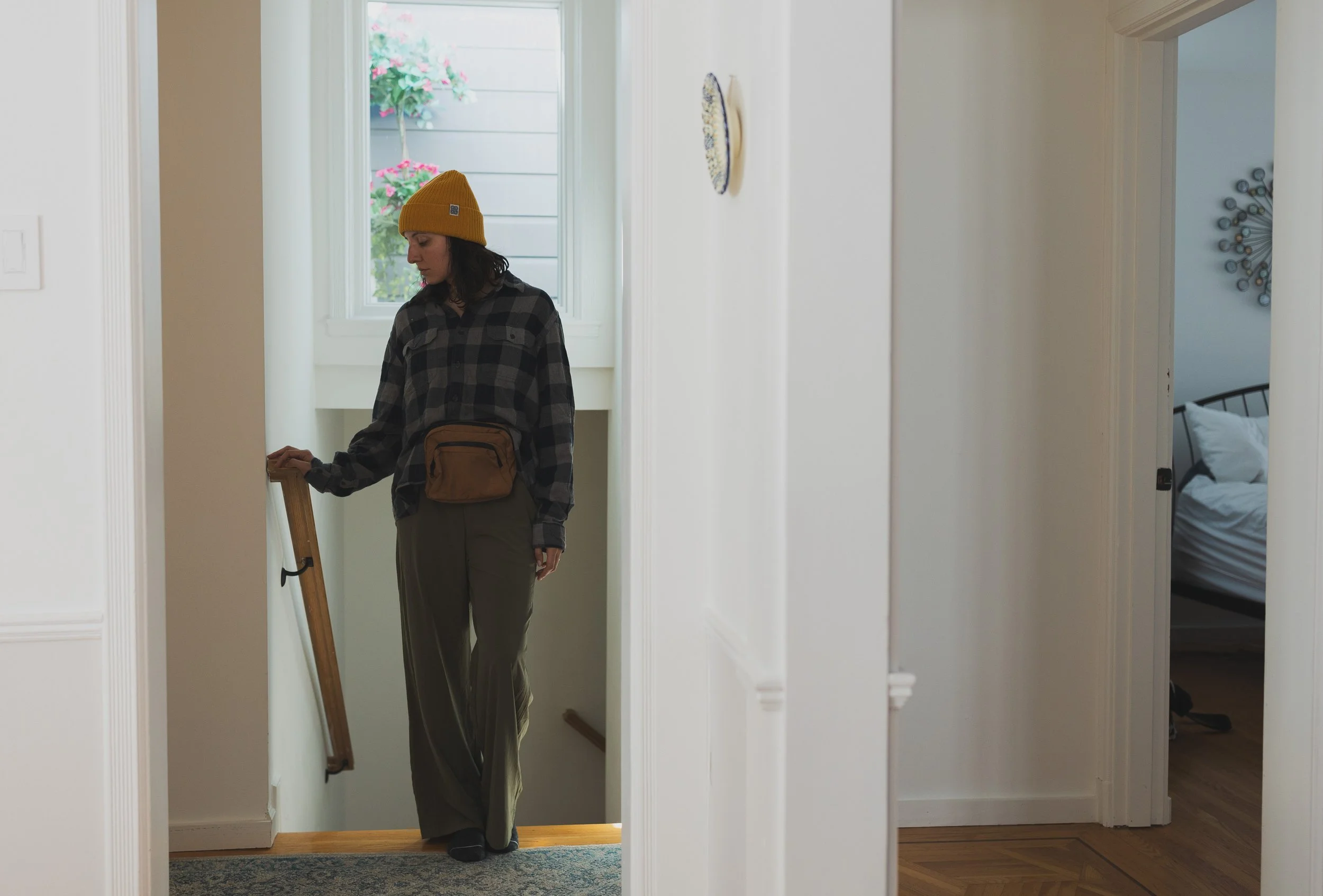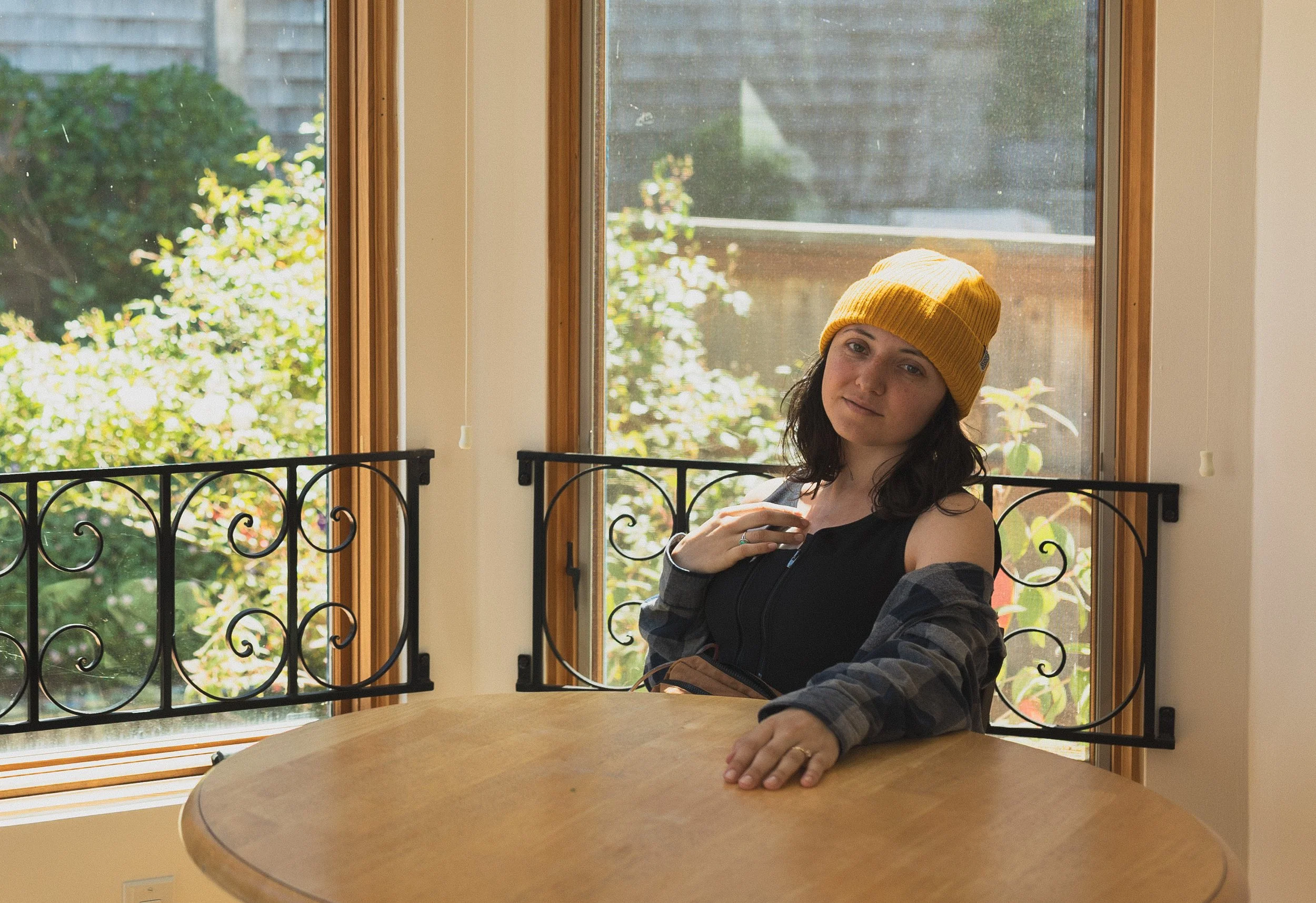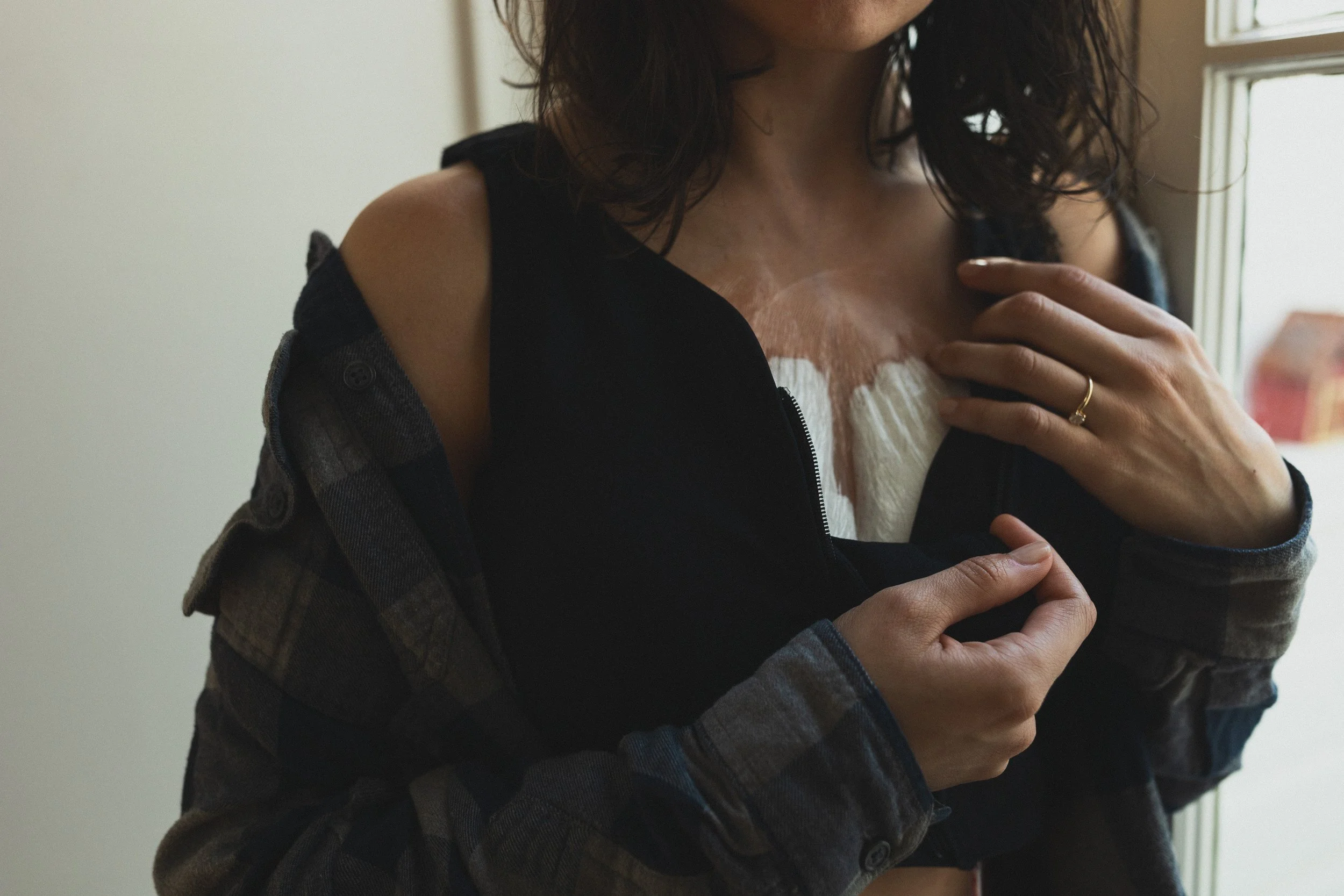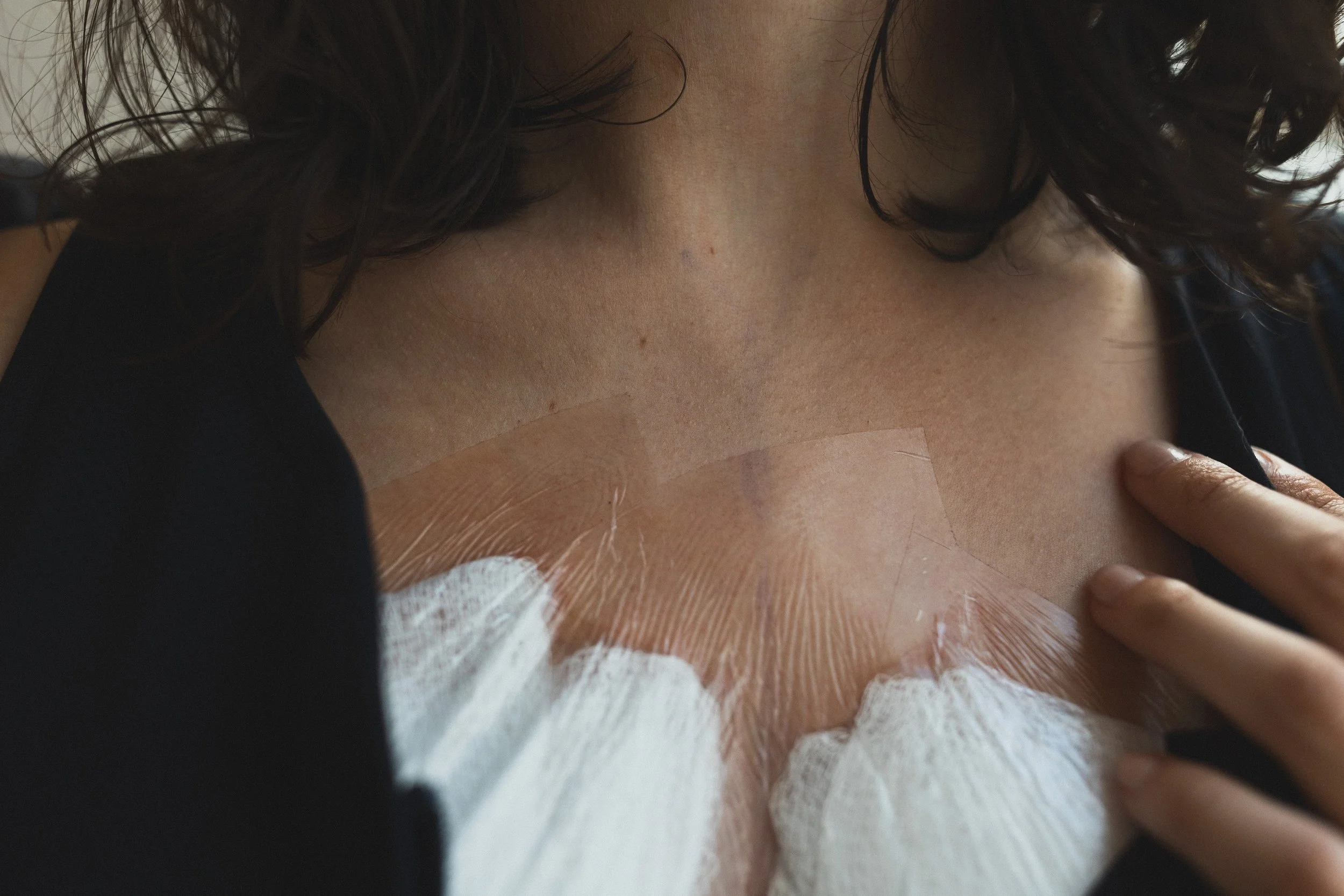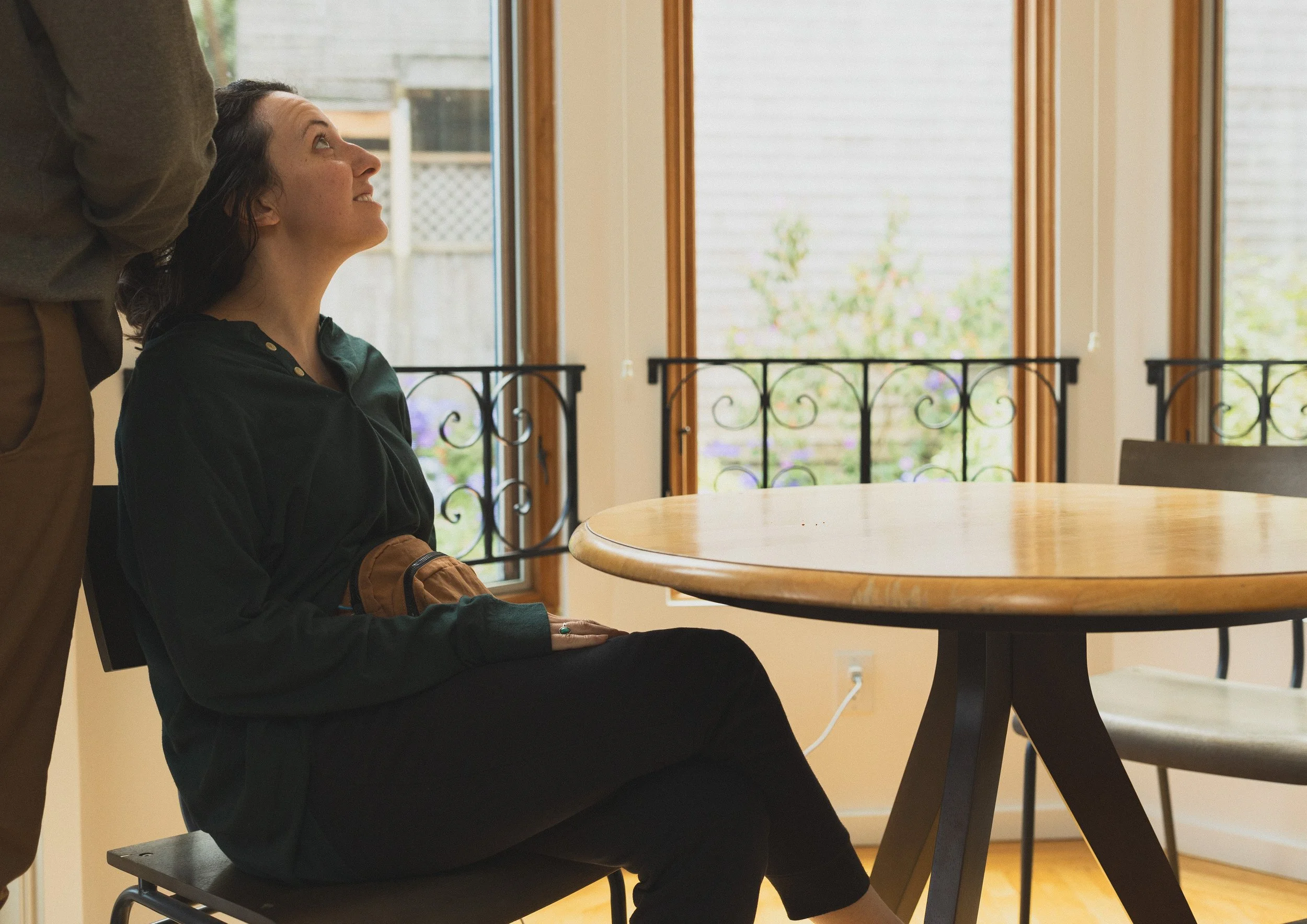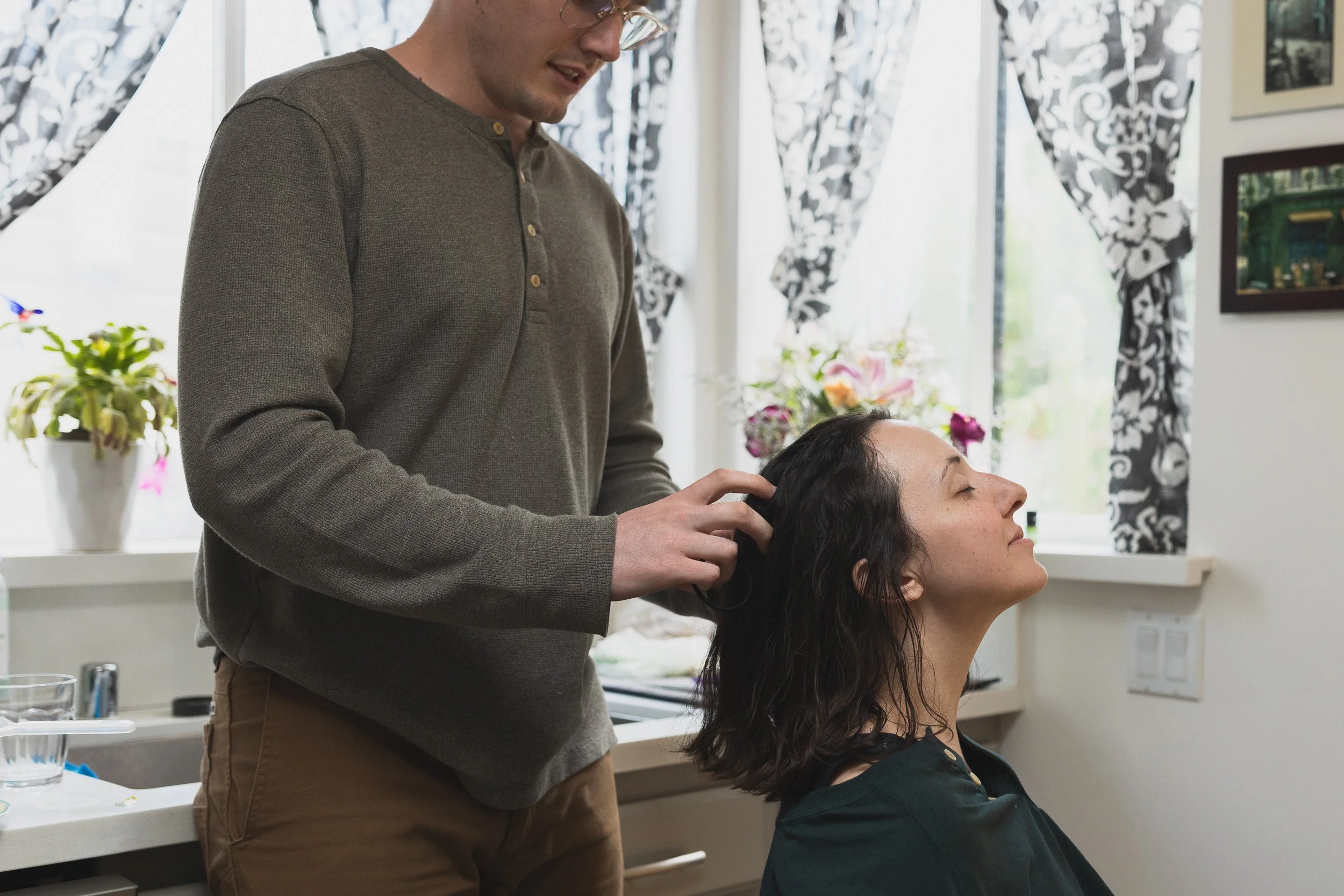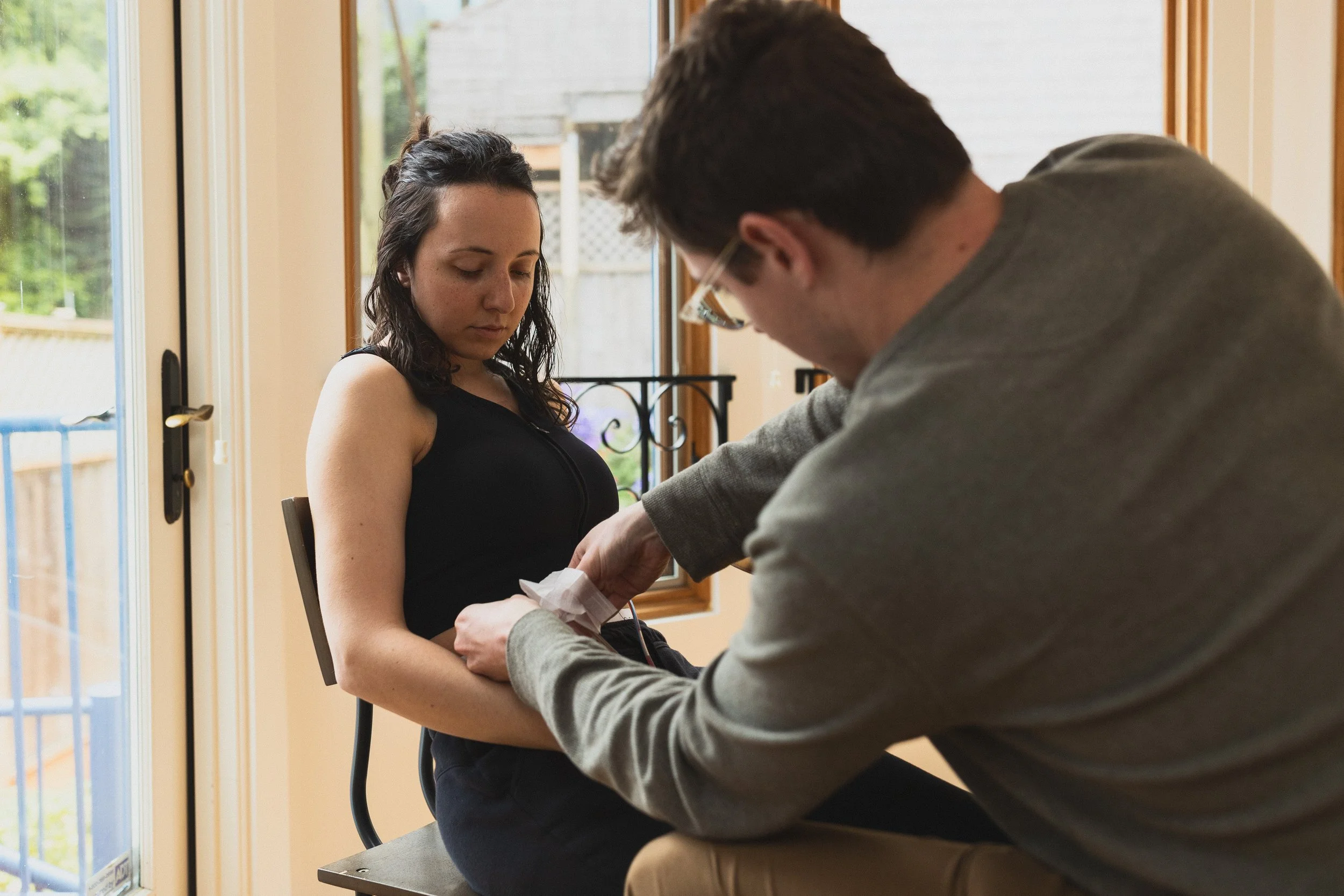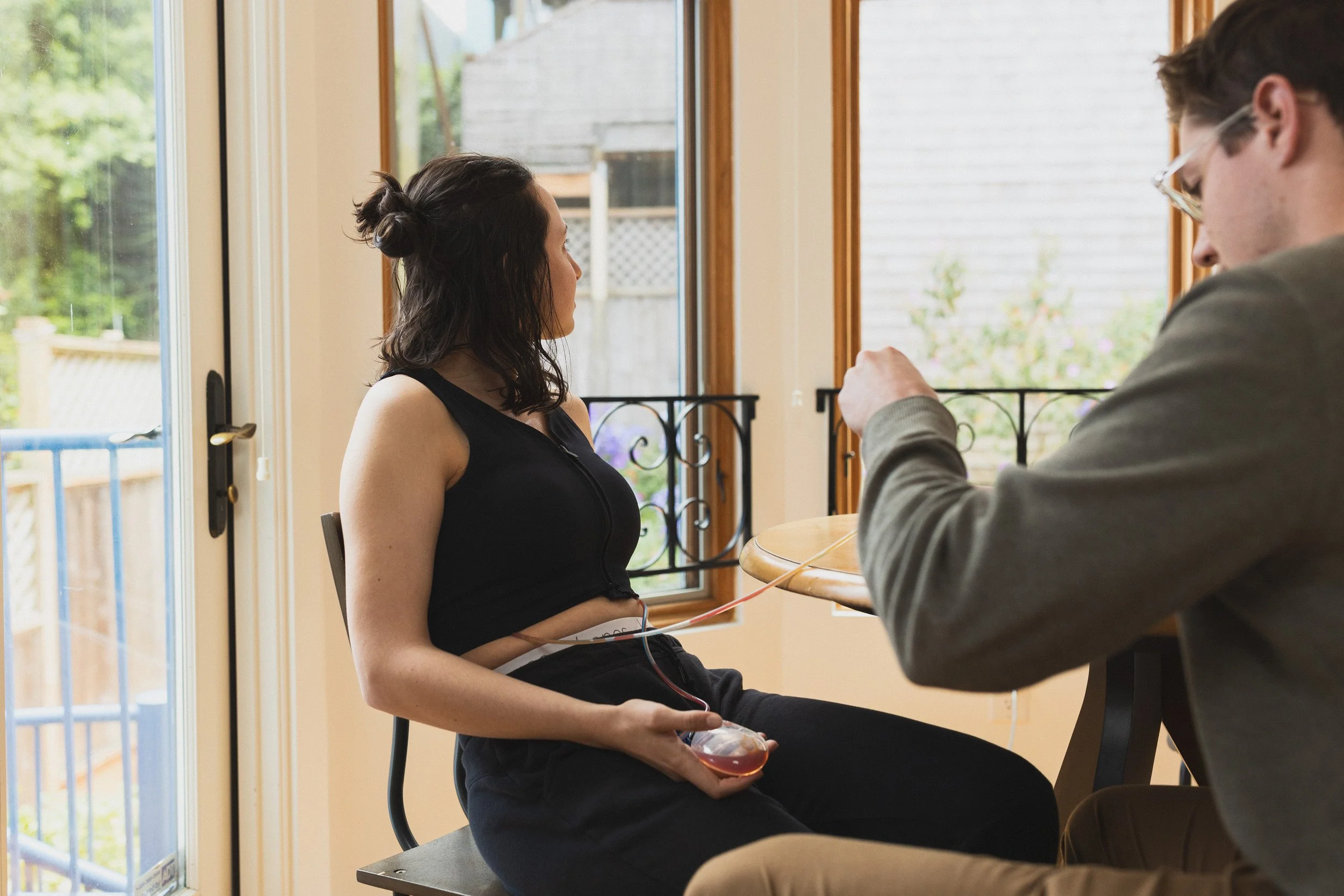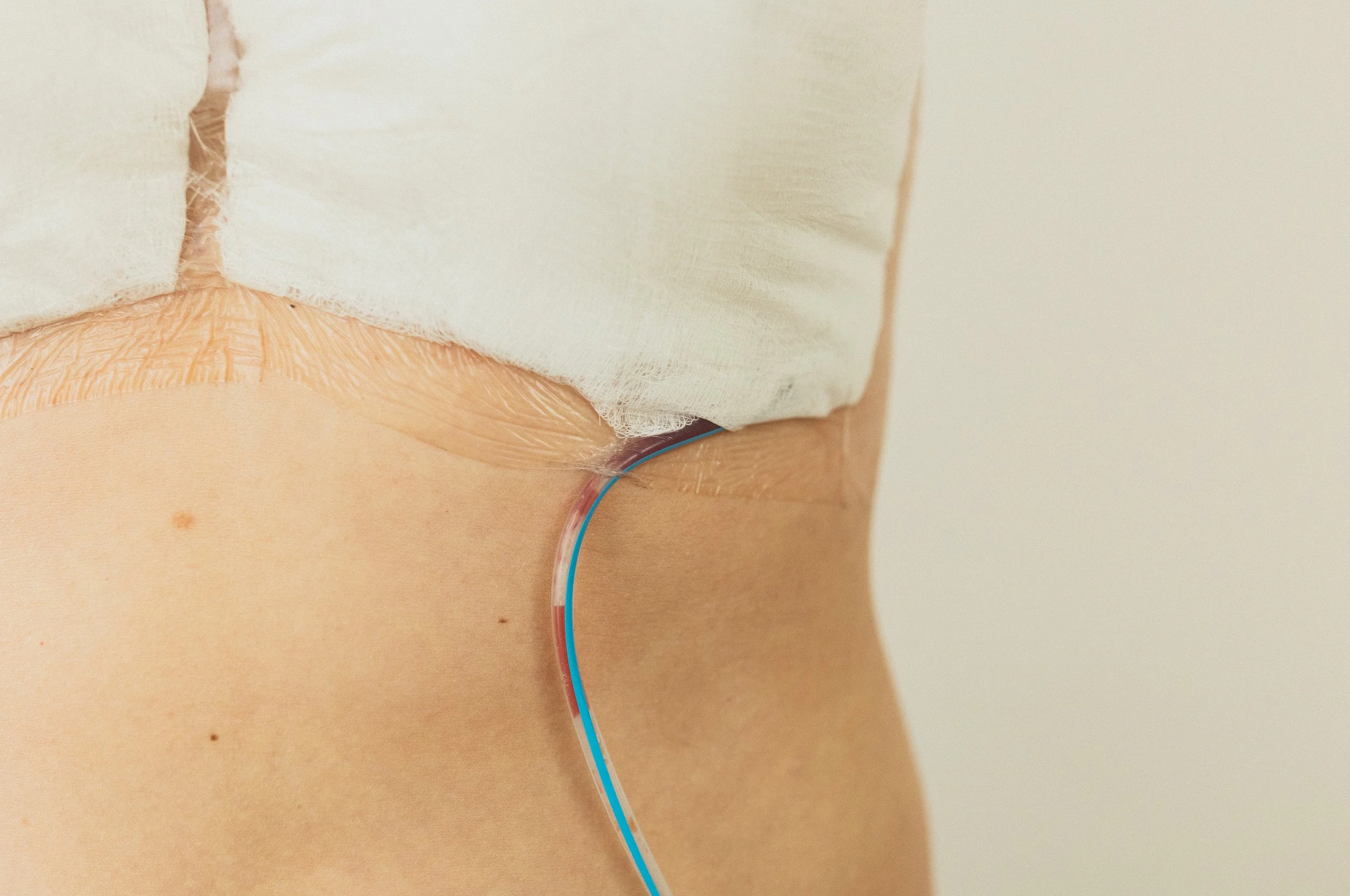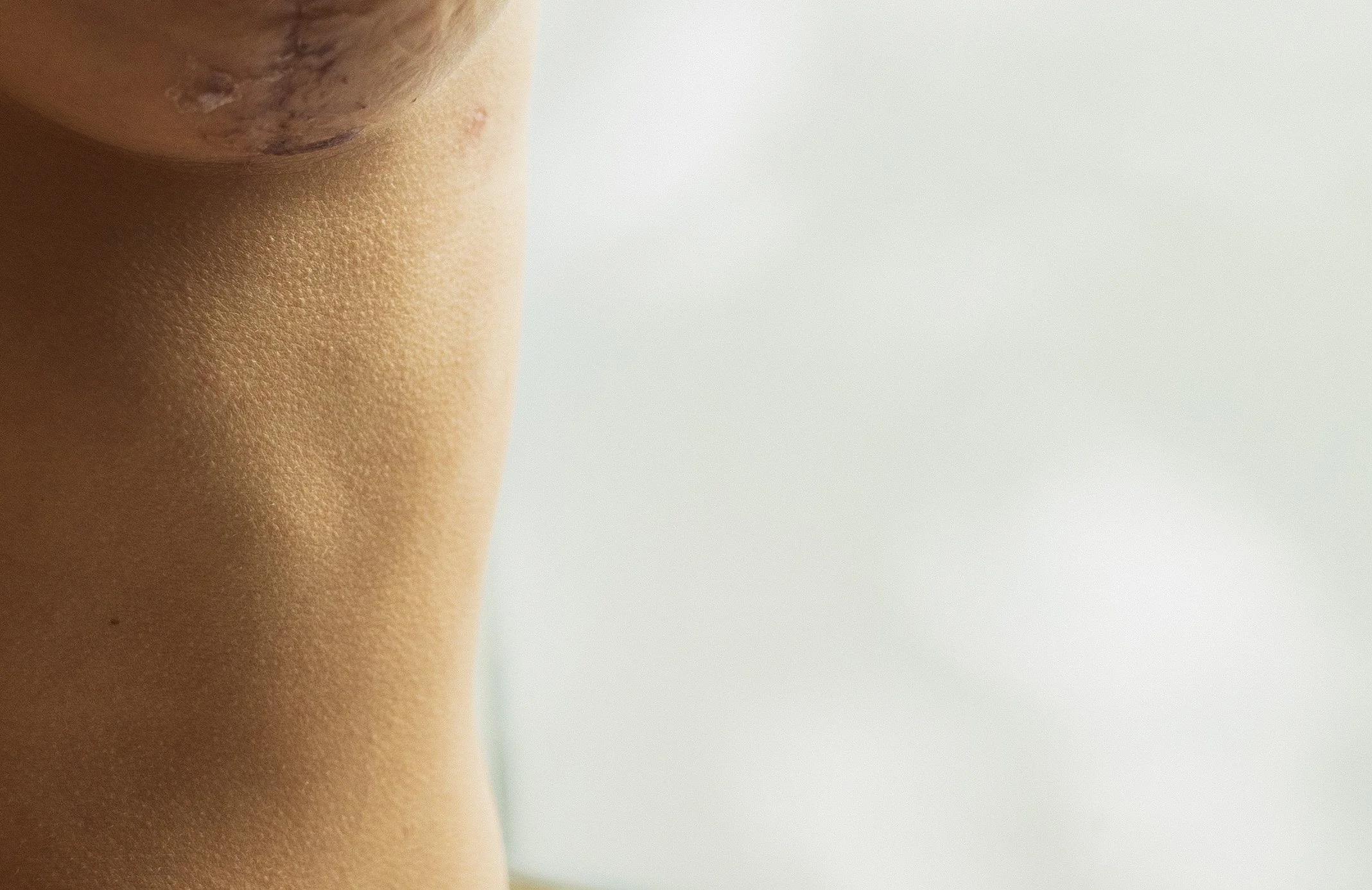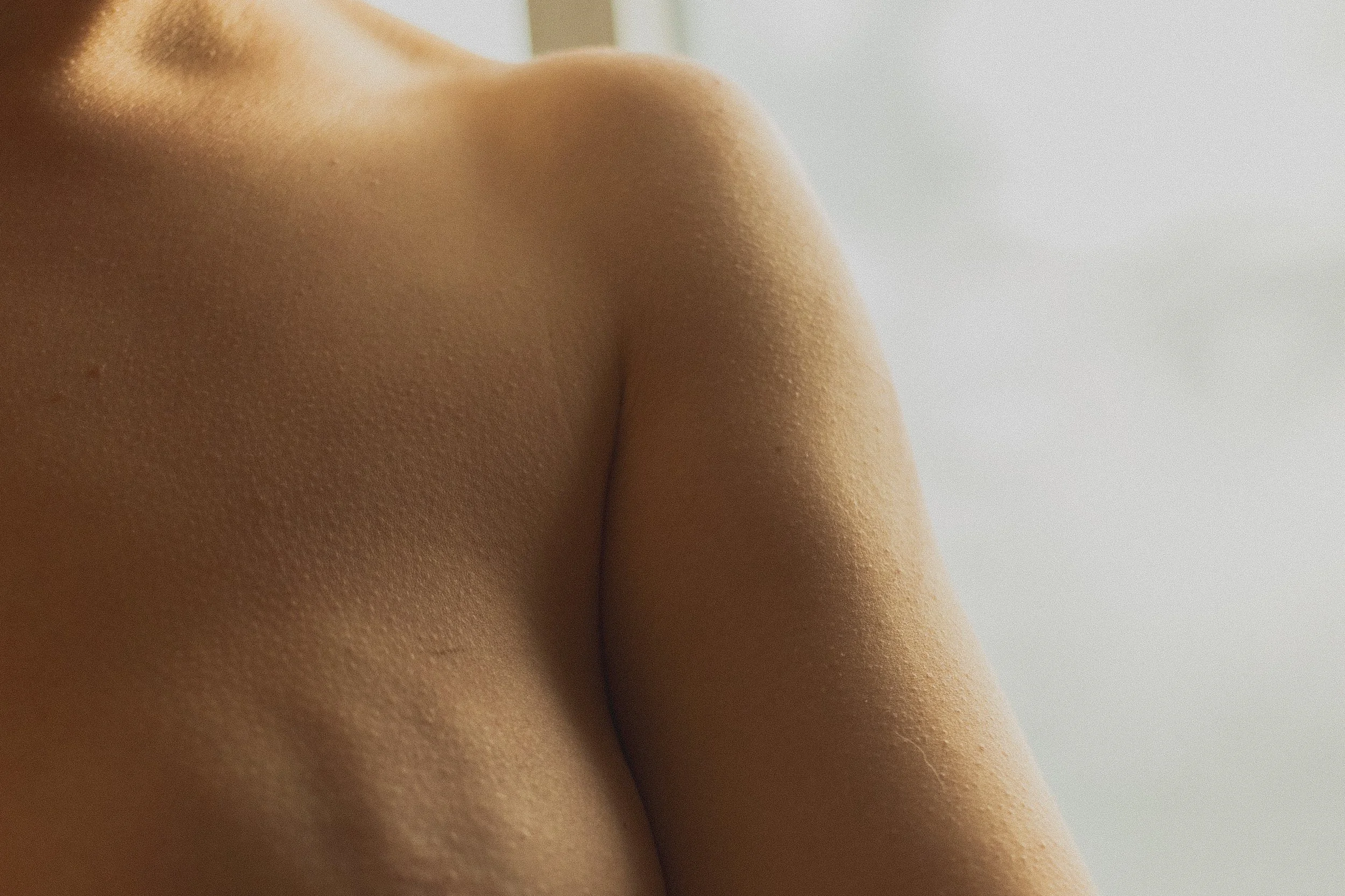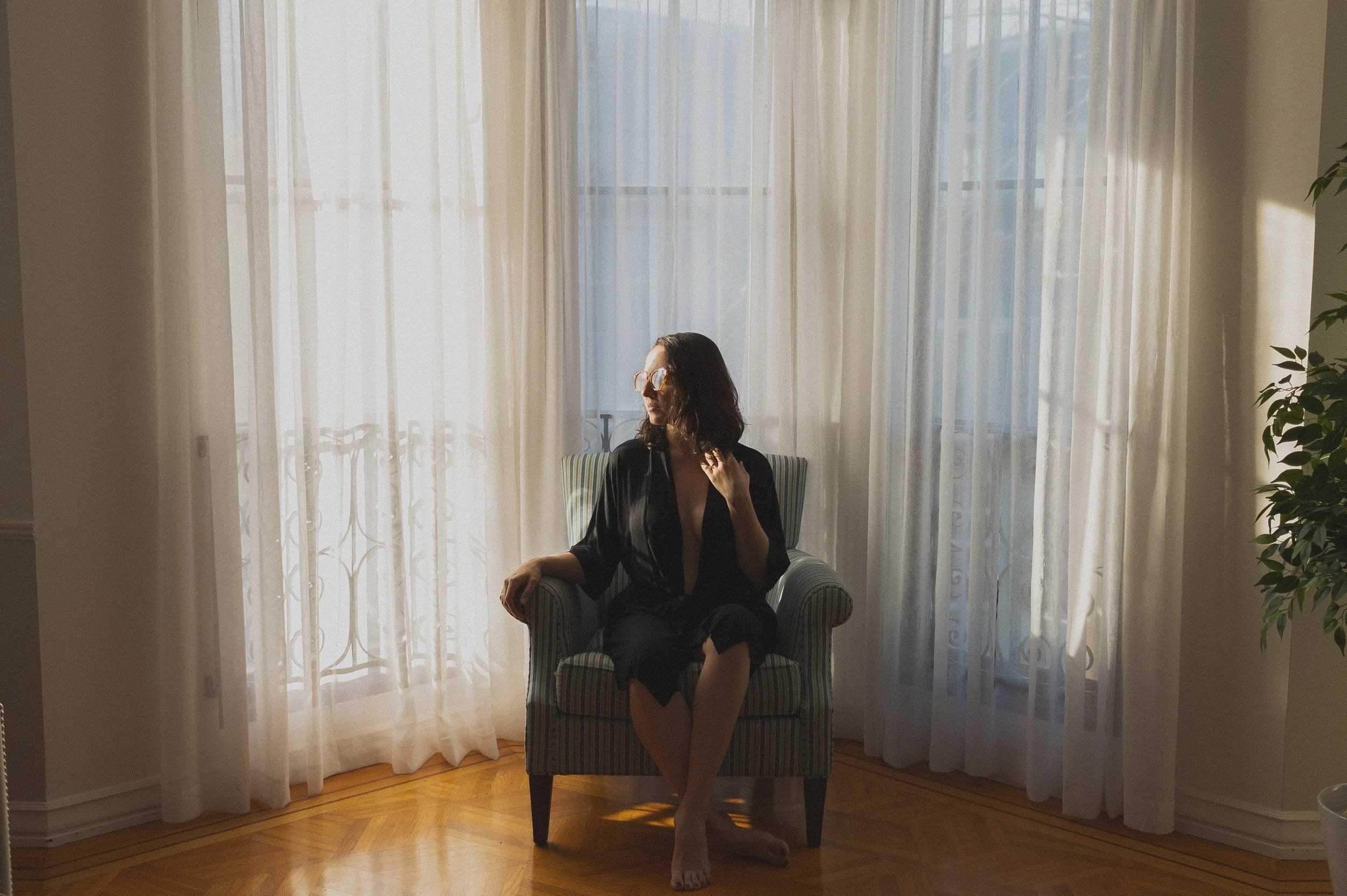Inside BRCA: A Self-Portrait Series
This project follows my personal journey with a BRCA2 genetic mutation, known for being linked to a high risk of hereditary breast cancer, and my preventative bilateral mastectomy.
* Please be aware this series includes surgery-related imagery and language and follows themes of mental health, loss, and grief.
In memory of Karen, Cindi, Felicity, and Jan
This series has been deeply personal to me feels vulnerable to share as I remain in and out of grief and courage, learning to hold both together.
Breast cancer took my mom’s life at the young age of 38 after an 8-year battle in 2006. I was 10 years old. Shortly after, her mother, my grandma, was taken by the same disease. From my earliest memories to today, my life has been marked by cancer. Visiting the most important people to me in and out of hospitals and oncology centers, seeing the effects of chemo and radiation ravage their bodies while they hid blood and tears, sending flowers, and hearing the haunting words, “without a cure, mom probably won’t live much longer” just a few foggy days before life changed forever.
Ten years after losing my mom, a genetic test found a mutation in my BRCA2 gene and with a strong family history, my lifetime risk for breast cancer was at 85%. The unexpected loss of two more of my dearest family members and mother-figures to cancer ripped away my deluded bandaids to reveal gaping wounds, and I finally gave myself permission to fall apart.
Untreated depression and PTSD all but swallowed me whole as the realities of my risk clashed unswervingly with its proximity to memories of loss.
In the darkest places in life, it is really hard to find joy. Really hard to find magic. Really hard to leave the house, keep the place clean, get out of bed, or even open your eyes to find a new day. Yet, in hindsight, magic was there.
When I could no longer hold it on my own, I started attending therapy. We got a dog who holds his own sweet, therapeutic magic. I took anti-depressants for the first time in my life, and felt hope - I felt like myself for the first time in a long time. I felt brave.
With a BRCA (either 1 or 2) gene mutation, you are considered a patient at "high-risk" for breast and ovarian cancers along with a laundry list of others. It is advised that you are screened for breast cancer via alternating MRIs with mammograms and blood tests every six months, indefinitely. The alternative to waiting and hoping for a biannual negative; preventative surgery.
At my lowest point, after years riddled with anxiety about making the right decision, a promise to a dear aunt who passed too soon just months before, and an increasing probability of hearing the same three words that ultimately took the lives of my loved ones, I decided to move forward and fight back.
I wrote the day before my surgery: "Tomorrow, I’m taking preventative measures to end the cycle. In just a few hours, I will go from an 85% lifetime risk of breast cancer to less than 2%. Mother’s Day has always been hard for me, and while unplanned, this one feels significant. Today, I feel honored to be taking another step into the courage my mothers bravely stood in, and passed down. I am honored to feel and carry their courage with me and I know they would be proud."
It was 2022 and strains of COVID-19 remained a looming presence. Hospitals required patients to enter alone. After the decision itself, this may have been the most difficult part for me. The anticipatory anxiety of preparing, walking in, waiting, and laying myself down on the surgical table was enough to make me jump entirely out of my own skin and float up and up and up until reality came crashing down again. And this is what happened; dissociation and panic for months, intensifying until walking myself into that waiting room alone.
I can conjure only a few details from then on, thanks to two tiny benzodiazepines that gave me the final push I needed. I remember shaking as I spoke with the woman who checked me in, tears fully welled up in my eyes. I remember taking my bulky camera backpack that carried my pajamas, my toothbrush, and my camera to a curtain-enclosed chair in a hallway where I would get my dreaded IV, and wait. I had often seen my mother behind similar curtains, with similar bands around her wrist, with similar tubes curiously descending into her skin. Courage and terror, held together, in tandem.
I remember taking out my heavy DSLR from its compartment and setting it on the flimsy tray in front of me (I'm sure an interesting sight in this context) - it proved to provide the same comfort it had in the days and months prior. I remember trying to draw just an ounce of creativity in my foggy state, and finding strength as I noticed it was me through the lens, actually there, sitting in the very chair I had constructed in my mind for years.
Alone behind the curtain, but held by the generations of bravery before me.
I did it.
My support system never wavered and celebrated a newfound sense of ease I couldn't have predicted until I was there.
On the "other side" I found my camera a constant companion in recovery.
Creativity has remained my outlet, even at my groggiest, when life becomes overwhelming and words alone just don't do. Art holds my questions, carries my tears, and patiently seeks to understand as I meander through depths unknown.
It's how I have learned to live with joy and pain in duality -
the only way I know to move forward.
Step by step -
I embodied the bravery that had always been mine.
And step by step, those who had been with me all along through some really dark days remained.
While all of the pain wasn't gone, for me it was that support and the gentleness of my own strength telling the lifelong flight response in my body, "rest".
I could do this.
Understanding what your loved ones experience when faced with any cancer-related diagnosis is the best way to help them feel supported in what can be an incredibly lonely place. A mastectomy impacts someone on a physical, psychological, and emotional level.
In practical terms, a mastectomy is the removal of the entirety of the breast tissue from below the armpits to the sternum, often with several major surgeries. After removal, it is left bare, muscle and skin, (AKA "going flat”), or reconstructed with your own tissue or artificial material. Following a mastectomy, one cannot breastfeed as the mammary glands have been permanently removed. One cannot physically feel their chest in the same way or at all for the remainder of their life as nerves have been cut, removed, and sometimes grafted together. The experience, far different from the "free boob job" that some well-meaning loved ones allude to when trying to make you feel better.
Psychologically, it carries with it a "choice” that if I’m being honest, felt more like a round of Russian Roulette. The bullet; around an 80% chance of your body betraying you at any point, or again for someone with a pre-existing cancer diagnosis. The turmoil of "I don't want to endure this pain, but should I? For my family, for me..,” and the haunting of whether this lifelong impact is necessary. Once a choice is made, you can’t let yourself wonder whether or not you have permanently altered your body for no reason, but celebrate, believing it to be the lifesaving act that it is.
On an emotional level, your body is different. You hold yourself differently. You feel and look different, no matter how much you went out of your way to remain the same. This procedure and any kind of breast cancer related diagnosis changes someones life and how they move in the world in agonizingly difficult yet freeing and beautiful ways.
Life looks different now. Today I’m a little more aware, a little less scared, and ever so slowly more comfortable with the synchrony of joy and pain.
I am learning to be gentle with myself and my new body, as I learn the same with those around me. For years, "move on" was the only hope I knew - move past something that altered my being in every way - but failed attempts only led to further isolation, wondering why I was the "only one" for whom "moving on" didn't work. Then, a realization brought a shift. I realized it has never been about moving on, but embracing. Being with. Breathing through. Knowing that I will never be the person I was prior to my loss, but I can be someone who knows grief, and carries a presence and a hope that can only be found when you walk through the dark. If you have been impacted by breast cancer, or cancer of any kind, you are not alone. Reach out if you have questions - as I am able, I would love to be a support.
Resources:
American Cancer Society: Breast Cancer Information, Genetics & Cancer
Centers for Disease Control & Prevention - Breast Cancer Information, BRCA Gene Information
Department of Mental Health: Breast Cancer & Mental Health
Support for individuals with breast / ovarian cancer related diagnoses:





